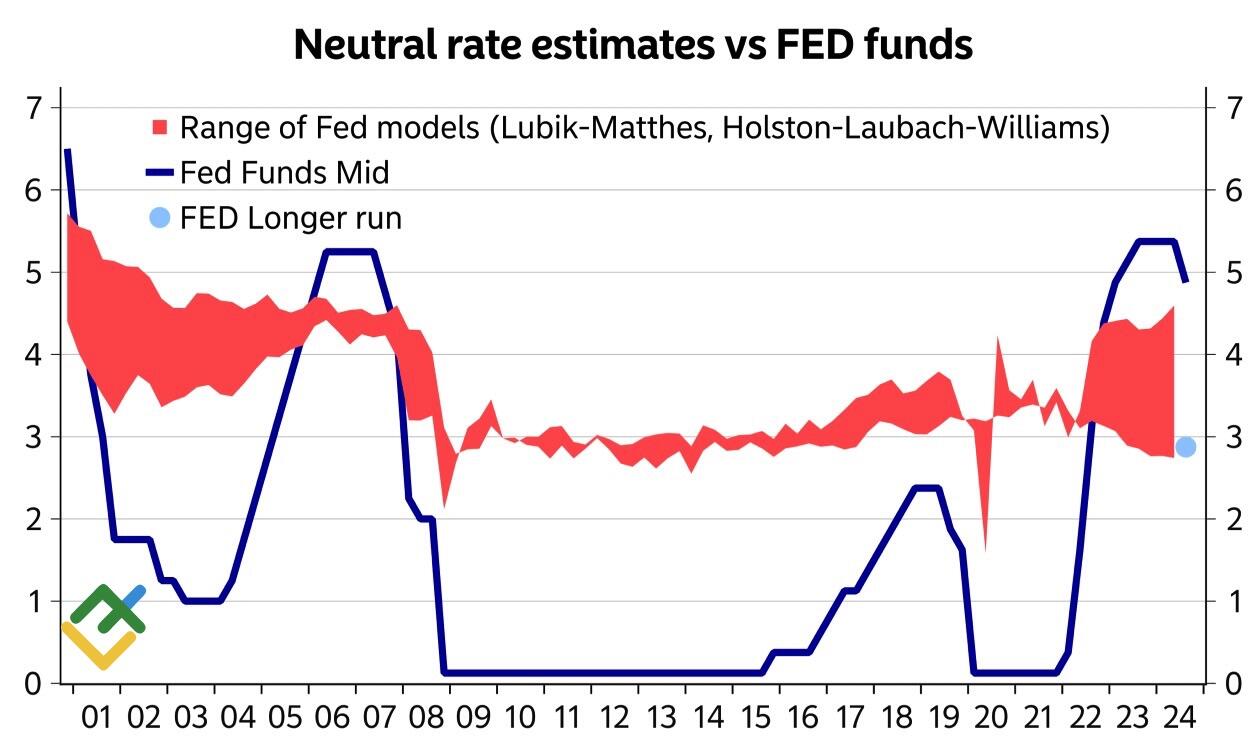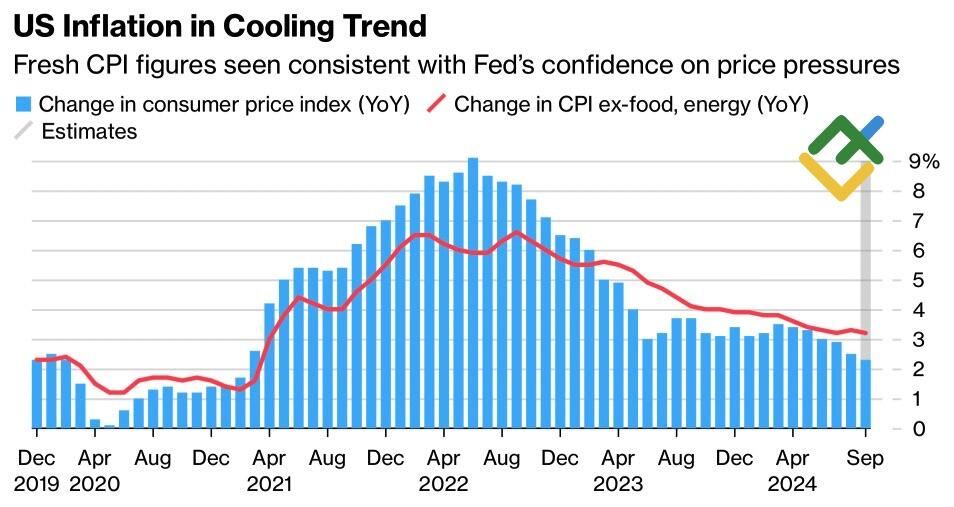
Expectations of an aggressive 150-200 bp cut in the federal funds rate in the current cycle weighed heavily on EURUSD bears. The US labor market report for September provided a shift in this expectation. Let’s discuss this topic and make a trading plan.
The article covers the following subjects:
Highlights and key points
- The market overestimated the scale of the Fed’s monetary expansion.
- Trade wars and geopolitics may support the US dollar.
- September inflation in the US will give the euro a chance to grow.
- A pullback to 1.1-1.102 may create a selling opportunity for the EURUSD pair.
Weekly US dollar fundamental forecast
If the market discounts everything, the US dollar rate factors in 150-200 basis points of federal funds rate cuts until the end of 2025. To be more precise, this was the case before the US employment report. The derivatives market gave a 36% probability of a broad 50 bps Fed rate hike in November. However, a day later, it excluded such a scenario and estimated the chances of maintaining the cost of borrowing at 5% at 14%. Against this backdrop, the EURUSD pair’s quotes dropped.
Fed neutral rate estimates and federal funds rate
Source: Nordea Markets.
The US dollar began 2024 in a robust position, with the USD index rising by 5% between January and July. Following indications of a slowdown in the US economy, investors have begun to anticipate that the US dollar will depreciate at the end of the year. Contrary to popular belief, this is not the case. This was sufficient for EURUSD bulls to achieve a brief rise in the pair above 1.12. Subsequently, the pair saw a significant decline. Should the federal funds rate continue to be revised as it was in October, this will likely result in a further strengthening of the euro.
Nordea projects that the EURUSD exchange rate will decline to 1.09 by the end of 2024 and to 1.07 by mid-2025. Following this, the major currency pair is expected to experience a period of gradual appreciation. This would require the global economy to outperform the US economy, which is not currently perceived as a likely scenario. The eurozone is experiencing a period of stagnation, with Germany on the verge of recession. Additionally, China’s significant monetary stimulus is taking time to have a tangible impact on the economy. Based on the response of stock markets in China, investors are seeking further indications of growth.
Therefore, the decline in the EURUSD pair can be attributed to the market’s overestimation of the scale of the Fed’s purported monetary expansion in light of the US employment data, as well as the resurgence of the American exceptionalism narrative in the Forex market. The US dollar may benefit from new opportunities following Donald Trump’s victory in the presidential election.
The risk of new trade wars, supply chain disruptions and accelerating inflation around the world, as well as the possibility of a direct armed clash between Israel and Iran, could prompt the Fed to pause the process of lowering the federal funds rate or return to monetary restriction. Either scenario would be positive for the US dollar.
However, as the report on US inflation is released, EURUSD bulls may start a counterattack. Bloomberg experts forecast a deceleration in consumer prices to 2.3%, reinforcing the prospect of the Fed’s November rate cut by 25 bps and exerting pressure on the US dollar. Furthermore, New York Fed President John Williams believes a 50 bps adjustment in 2024, as reflected in the latest FOMC forecast, represents a reasonable baseline scenario.
US inflation change
Source: Bloomberg.
Weekly EURUSD trading plan
The market is buying the EURUSD on rumors, and a sell-off will likely follow in reaction to the CPI data release. Therefore, one can open short positions on the EURUSD pair at 1.1-1.102.
Price chart of EURUSD in real time mode
The content of this article reflects the author’s opinion and does not necessarily reflect the official position of LiteFinance. The material published on this page is provided for informational purposes only and should not be considered as the provision of investment advice for the purposes of Directive 2004/39/EC.
{{value}} ( {{count}} {{title}} )
This post is originally published on LITEFINANCE.






